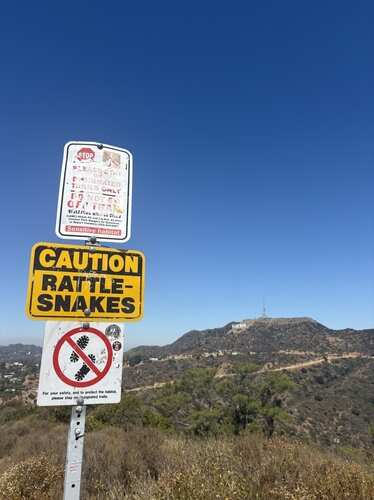A Tennessee hiker’s tragic death after picking up a rattlesnake exposes how quickly preventable mistakes can turn deadly, raising urgent questions about personal responsibility and the importance of common-sense outdoor safety—especially as Americans push back against bureaucratic overreach and misguided agendas that too often ignore the basics of self-reliance.
Story Snapshot
- A hiker died after picking up a venomous rattlesnake in Tennessee’s Savage Gulf State Park, underscoring the danger of ignoring wildlife safety protocols.
- Officials believe an allergic reaction to the snake’s venom caused the fatality, a rare outcome in U.S. snakebite incidents.
- Park authorities and emergency responders emphasize that most snakebites occur when people attempt to handle or interfere with snakes.
- The tragedy has prompted renewed calls for robust outdoor education, self-reliance, and personal responsibility—values often neglected by leftist, top-down policy approaches.
Deadly Consequences of Ignoring Outdoor Safety
On August 8, 2025, a hiker at Savage Gulf State Park in Tennessee made the fatal error of picking up what officials suspect was a timber rattlesnake. The snake bit the hiker on the hand, prompting a rapid emergency response, including CPR and transport to a nearby hospital. Despite these efforts, the hiker died, with authorities suspecting a rare allergic reaction to the venom as the cause. The official cause of death is still pending, but the event has reignited focus on the necessity of respecting wildlife and following safety protocols in America’s parks.
This event stands out not simply as a personal tragedy, but as a preventable one. Timber rattlesnakes, native to Tennessee and the broader eastern United States, are generally non-aggressive and rarely bite unless provoked. The Centers for Disease Control and Prevention estimates that while thousands of venomous snakebites occur nationwide each year, fatalities average just five annually. Nearly every expert agrees: most bites happen when individuals try to handle, harass, or kill snakes—actions that run counter to decades of common-sense advice and responsible outdoor conduct. This underscores the importance of personal accountability, a foundational American value often undermined by today’s culture of blame-shifting and regulatory excess.
Stakeholders: Responsibility and Response
The fallout from this incident involved multiple stakeholders, including the Grundy County Emergency Management Agency, the Tennessee Wildlife Resources Agency, and local park authorities. Emergency responders acted quickly, administering life-saving measures and transporting the victim, exemplifying the professionalism and commitment expected of local agencies. Public statements from officials have reiterated longstanding guidance: do not attempt to handle wild snakes, and seek immediate medical attention if bitten. The deceased’s family, seeking closure, has also become part of a broader community reckoning with the inherent risks of outdoor recreation and the enduring need for vigilance and preparedness.
For years, Tennessee’s park rangers and wildlife officials have relied on education—not heavy-handed regulation—to keep visitors safe. Despite annual snake encounters, fatalities are exceptionally rare, thanks to both the natural docility of snakes like the timber rattler and the effectiveness of practical safety messaging. This approach contrasts sharply with the one-size-fits-all mandates and bureaucratic micromanagement favored by the previous administration on numerous policy fronts. Instead, it highlights the effectiveness of targeted, commonsense interventions grounded in individual responsibility and local expertise.
What This Means for American Values and Policy
As the nation moves forward under new conservative leadership, this tragedy serves as a reminder that top-down, agenda-driven policymaking cannot replace the wisdom of personal responsibility and community-based education. Calls for increased government overreach—whether through excessive regulation or misguided “woke” campaigns—often distract from practical, life-saving advice rooted in tradition and common sense. The renewed emphasis on empowering citizens to make informed decisions, rather than treating them as passive subjects of ever-expanding bureaucracies, is essential. Ensuring that hikers and outdoor enthusiasts understand the risks and respect wildlife safeguards not just individual lives, but also a way of life built on American values of liberty, accountability, and respect for nature.
Long-Term Impact: Education, Not Overregulation
The hiker’s death has catalyzed renewed efforts to promote robust outdoor education, responsible recreation, and the importance of carrying basic first aid supplies. Park authorities are focusing on enhanced signage and community outreach, but remain committed to practical, evidence-based strategies that respect both visitor autonomy and public safety. This approach reinforces the core conservative belief that freedom and responsibility go hand in hand. As Americans continue to enjoy the nation’s natural beauty, the key lesson is clear: respect the land, respect its creatures, and never substitute reckless curiosity for time-tested wisdom. By upholding these principles, we honor both the individual lost and the enduring legacy of self-reliance that defines our country.
Sources:
Hiker dies after being bitten by venomous snake in Tennessee’s Savage Gulf State Park
Hiker dies after getting bitten by venomous rattlesnake he picked up
Tennessee hiker dies after snake bite ‘mistake’
Tennessee hiker dies after being bitten by venomous snake, officials say
Click this link for the original source of this article.
Author: Editor
This content is courtesy of, and owned and copyrighted by, https://libertynewsalerts.com and its author. This content is made available by use of the public RSS feed offered by the host site and is used for educational purposes only. If you are the author or represent the host site and would like this content removed now and in the future, please contact USSANews.com using the email address in the Contact page found in the website menu.








